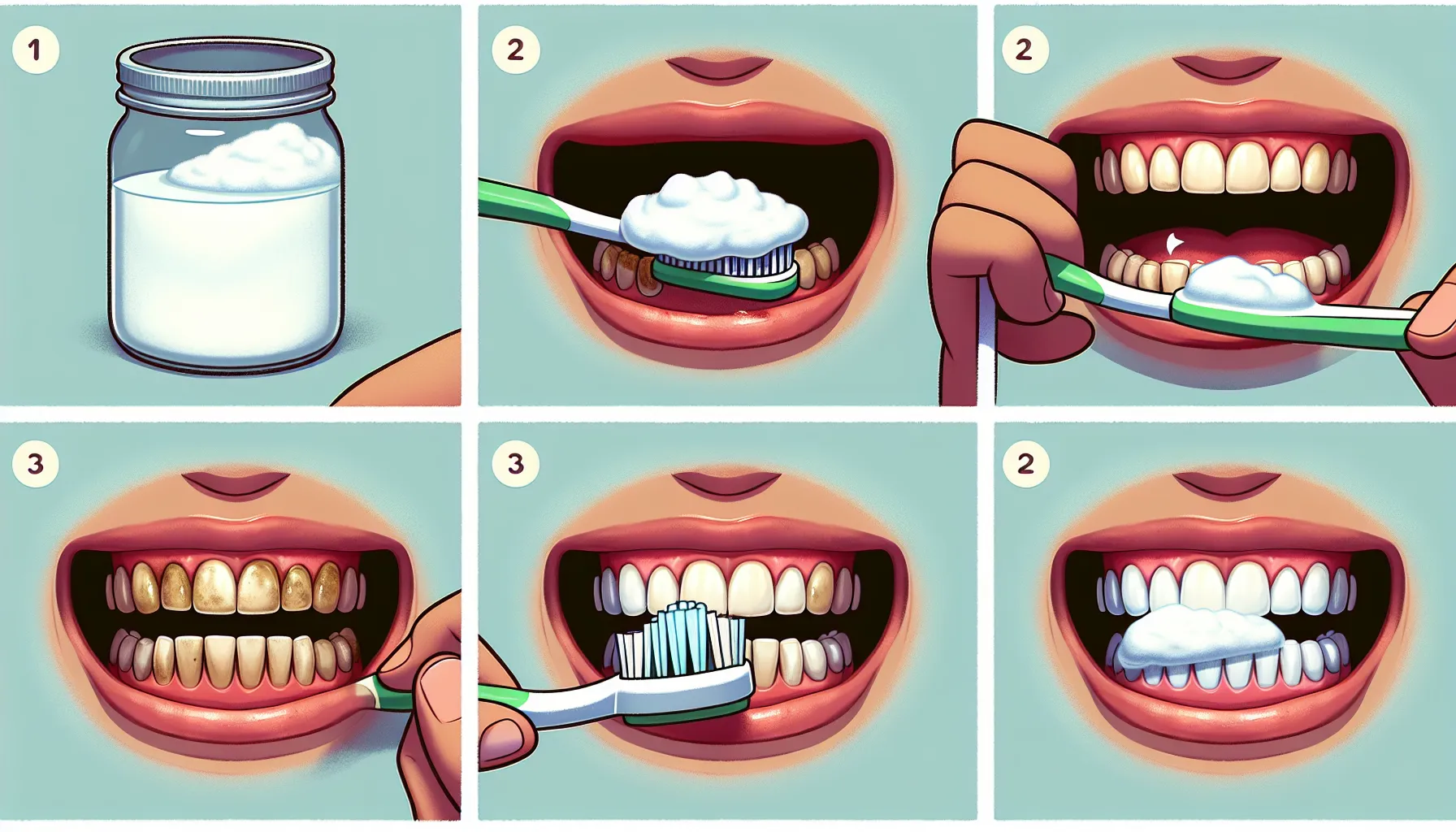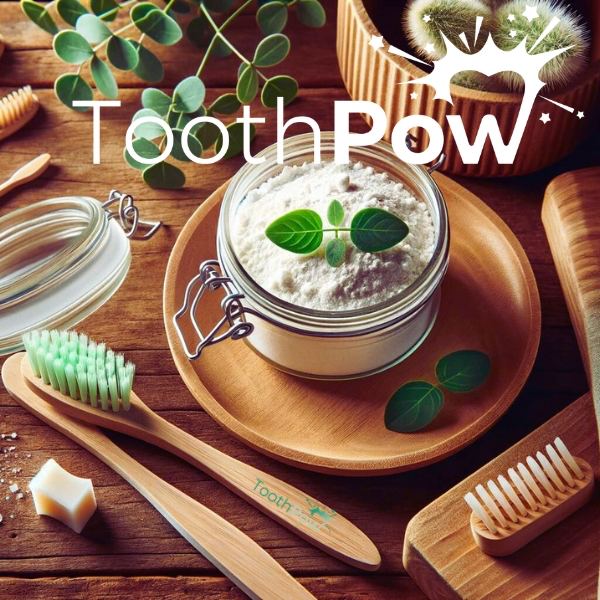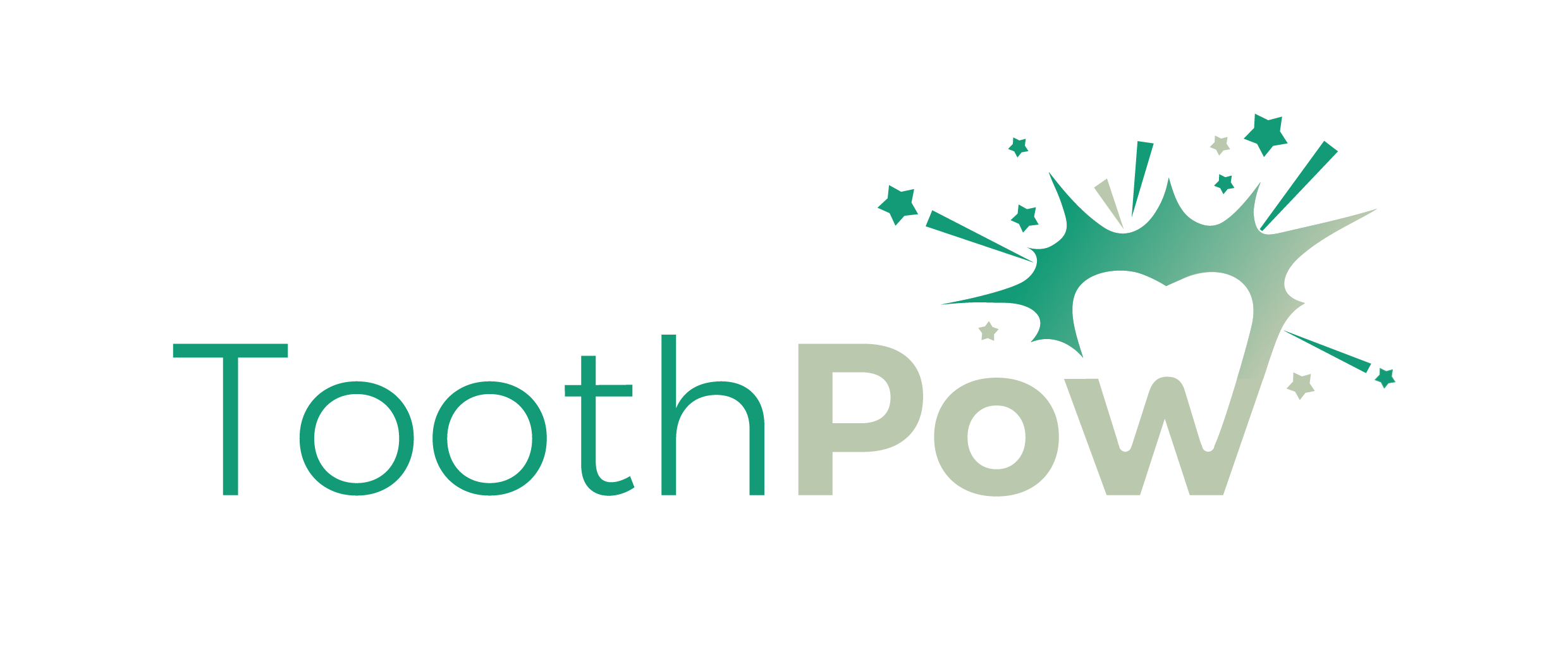The Power of Baking Soda in Oral Health
In recent years, a common household ingredient has gained attention for its remarkable benefits in oral health. This natural and affordable solution offers a powerful ally in maintaining a healthy smile and fresh breath. From its ability to whiten teeth to its effectiveness in neutralizing acids and bacteria in the mouth, this ingredient has proven to be a game-changer in enhancing your dental routine. In this exploration, we will delve into the science behind its impact on oral health, its practical applications in daily dental care, and the potential it holds for your overall well-being. Whether you're aiming to reduce plaque, combat bad breath, or simply achieve a brighter smile , understanding the role of this ingredient in oral hygiene is essential. Join us as we uncover the myriad benefits of incorporating this simple ingredient into your dental regimen and discover how it can revolutionize your oral health.
Using Baking Soda in Your Dental Routine
Baking soda is a versatile household ingredient that can be used for a variety of purposes, including dental care. Incorporating baking soda into your dental routine can offer numerous benefits, from whitening your teeth to preventing tooth decay and gingivitis. In this section, we will explore the different ways you can use baking soda to improve your oral health and save money on expensive dental treatments.
Brushing with Baking Soda
One of the most common uses of baking soda in dental care is as a toothpaste alternative. Baking soda has natural whitening properties and can help remove surface stains from your teeth. To use baking soda for brushing, simply wet your toothbrush, dip it into a small amount of baking soda, and brush your teeth as usual. However, it's important to note that baking soda is abrasive, so it should be used with caution to avoid damaging the enamel.
Rinsing with Baking Soda
In addition to brushing, rinsing with a baking soda solution can help neutralize acids in the mouth and reduce the risk of tooth decay. You can create a simple baking soda mouth rinse by dissolving a teaspoon of baking soda in a glass of water. Swish the solution around in your mouth for a minute or two before spitting it out. This can be especially beneficial after consuming acidic or sugary foods and beverages.
Saving Money and Protecting Your Teeth with This DIY Remedy
By incorporating baking soda into your dental routine, you can potentially save money on expensive whitening treatments and professional cleanings. Baking soda offers a cost-effective and natural alternative for maintaining oral hygiene and promoting a healthy smile. Additionally, its versatility allows for various applications beyond dental care, making it a valuable addition to your household.
Whitening Teeth with Baking Soda
Baking soda works as a mild abrasive that can help remove surface stains from the teeth, resulting in a brighter and whiter smile. Its alkaline nature also helps balance the pH levels in the mouth, creating an environment less conducive to the growth of bacteria and plaque. As a result, regular use of baking soda can contribute to improved oral health and a more radiant smile. In short, baking soda is good for your teeth and is essentially working to balance the pH levels in your mouth to help prevent tooth decay.
Preventing Tooth Decay at Home
The use of baking soda in dental care extends to its potential role in preventing and treating tooth decay at home. Its ability to neutralize acids and inhibit bacterial growth makes it a valuable tool in maintaining oral health. While it is not a substitute for professional dental care, incorporating baking soda into your oral hygiene routine can complement your overall dental health regimen.
Solving Dental Problems with Baking Soda
Baking soda can solve a variety of dental problems, from whitening teeth and preventing tooth decay to addressing bad breath and gingivitis. Its natural properties make it a versatile and cost-effective solution for maintaining oral health and addressing common dental concerns. By using baking soda as part of your dental routine, you can take proactive steps to protect your teeth and gums.
Addressing Gingivitis with Baking Soda
Gingivitis, characterized by inflammation of the gums, can benefit from the use of baking soda due to its anti-inflammatory and antibacterial properties. Rinsing with a baking soda solution can help reduce the bacteria in the mouth and alleviate gum inflammation. However, it's important to consult with a dental professional for personalized advice and treatment options for gingivitis.
Incorporating baking soda into your dental routine can offer a range of benefits, from whitening your teeth to preventing tooth decay and addressing common dental concerns. However, it's essential to use baking soda with caution and in moderation to avoid potential damage to the enamel. As with any dental care regimen, it's advisable to consult with a dental professional to ensure that baking soda usage aligns with your specific oral health needs. In summary, baking soda can be a valuable addition to your dental care routine, offering natural and cost-effective solutions for maintaining oral health and promoting a radiant smile.

Precautions and Considerations
Potential Risks of Using Baking Soda
While baking soda is often touted as a natural and effective teeth whitening agent, it's important to be aware of potential risks associated with its use. One of the primary concerns is its abrasive nature. Baking soda is a gritty substance that can wear down the enamel of your teeth if used excessively or with too much force. Enamel erosion can lead to increased tooth sensitivity and make the teeth more susceptible to decay over time. It's crucial to use baking soda in moderation and with caution to avoid these adverse effects.
Another risk to consider is the potential for gum irritation. Baking soda, when not properly diluted or used in high concentrations, can cause irritation to the gums. This may manifest as redness, swelling, or discomfort in the gum tissue. Individuals with sensitive gums or pre-existing gum conditions should be particularly cautious when using baking soda as a teeth whitening agent. It's advisable to discontinue use if any gum irritation occurs and seek advice from a dental professional.
This is why ToothPow Tooth Powder was designed to be less rough on enamel than just baking soda but still providing the benefits.
Consulting with a Dentist
Before incorporating baking soda into your oral care routine for teeth whitening purposes, it's advisable to consult with a dentist. A dental professional can assess your oral health and provide personalized recommendations based on your specific needs. They can evaluate the condition of your teeth and gums, identify any existing dental issues, and offer guidance on the safe and effective use of baking soda for teeth whitening.
Furthermore, a dentist can advise on the frequency and duration of baking soda use to minimize potential risks and maximize results. They may also recommend alternative teeth whitening options that are better suited to your oral health status and goals. By seeking professional guidance, you can ensure that your teeth whitening efforts are aligned with maintaining optimal oral health.
While baking soda can be an affordable and accessible option for teeth whitening, it's essential to be mindful of the potential risks and seek professional input. By understanding the precautions and considerations associated with its use, individuals can make informed decisions about incorporating baking soda into their oral care routine. Prioritizing oral health and consulting with a dentist can help mitigate risks and ensure that teeth whitening efforts are both safe and effective.

Incorporating Baking Soda into Your Overall Oral Health Routine
When it comes to maintaining good oral health, what you eat matters. A diet high in sugary and acidic foods can contribute to tooth decay and gum disease. However, incorporating baking soda into your dietary habits can help neutralize acids in your mouth, reducing the risk of enamel erosion and cavities. Consider using recipes that include baking soda as an ingredient, such as homemade toothpaste or mouthwash, to promote a healthier oral environment.
In addition to baking soda, there are several other natural remedies that can complement your oral health routine. For example, coconut oil pulling has gained popularity for its potential to reduce plaque and bacteria in the mouth. When combined with baking soda, these natural remedies can work synergistically to promote a cleaner and healthier mouth. Consider incorporating these natural remedies into your daily routine for a comprehensive approach to oral care.
Baking soda offers a multitude of benefits for your oral health. Not only does it help neutralize acids and reduce plaque, but it also acts as a mild abrasive, aiding in the removal of surface stains on teeth. Furthermore, its antimicrobial properties can help combat bacteria in the mouth, contributing to fresher breath and a reduced risk of gum disease. By incorporating baking soda into your oral health routine, you can enjoy a comprehensive approach to maintaining a healthy and vibrant smile.
Cavities are a common dental issue that can lead to discomfort and potential tooth loss if left untreated. Fortunately, baking soda can play a role in cavity prevention and management. When used in conjunction with regular brushing and flossing, baking soda can help neutralize acids and create an inhospitable environment for cavity-causing bacteria. By incorporating baking soda into your dental care routine, you can take proactive steps to combat cavities and promote better oral health.
As it turns out, working baking soda into your dental care regimen is as easy as brushing your teeth! Simply sprinkle a small amount of baking soda onto your toothbrush along with your regular toothpaste and brush as usual. Alternatively, you can find toothpaste products that already contain baking soda. This simple addition to your daily routine can yield significant benefits for your oral health.
We recommend picking up some soda toothpaste for two reasons: First, baking soda is a cost-effective option for maintaining oral health. Unlike some specialized dental products, baking soda is widely available and affordable, making it an accessible choice for individuals seeking to enhance their oral care routine without breaking the bank. Second, baking soda is effective at addressing multiple oral health concerns. From neutralizing acids to reducing plaque and freshening breath, baking soda offers a comprehensive approach to oral care. By choosing a toothpaste that incorporates baking soda, you can simplify your oral health routine while reaping the benefits of this versatile ingredient.
Incorporating baking soda into your overall oral health routine can offer a range of benefits, from cavity prevention to fresher breath. By considering dietary habits, exploring natural remedies, and embracing baking soda as an all-in-one oral health solution, you can take proactive steps toward maintaining a healthy and vibrant smile. With its affordability and effectiveness, baking soda is a valuable addition to any oral care regimen, offering a simple yet impactful way to support your dental health.

Conclusion
Incorporating baking soda into your dental routine can significantly improve your oral health. From whitening teeth to neutralizing acids and fighting bacteria, baking soda offers a range of benefits for maintaining a healthy smile. To explore high-quality dental products that harness the power of baking soda, visit ToothPow.com Stay informed about the latest updates and be the first to access the store by signing up for notifications. Elevate your oral care routine with the natural benefits of baking soda today!


